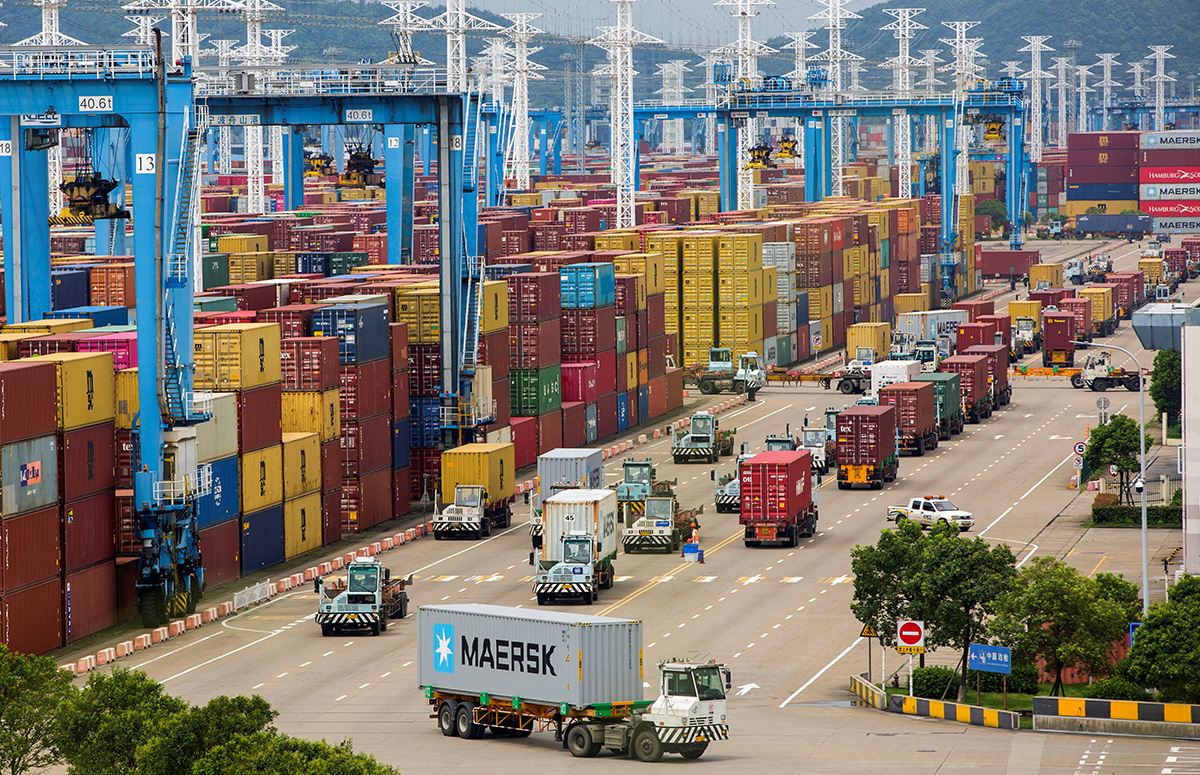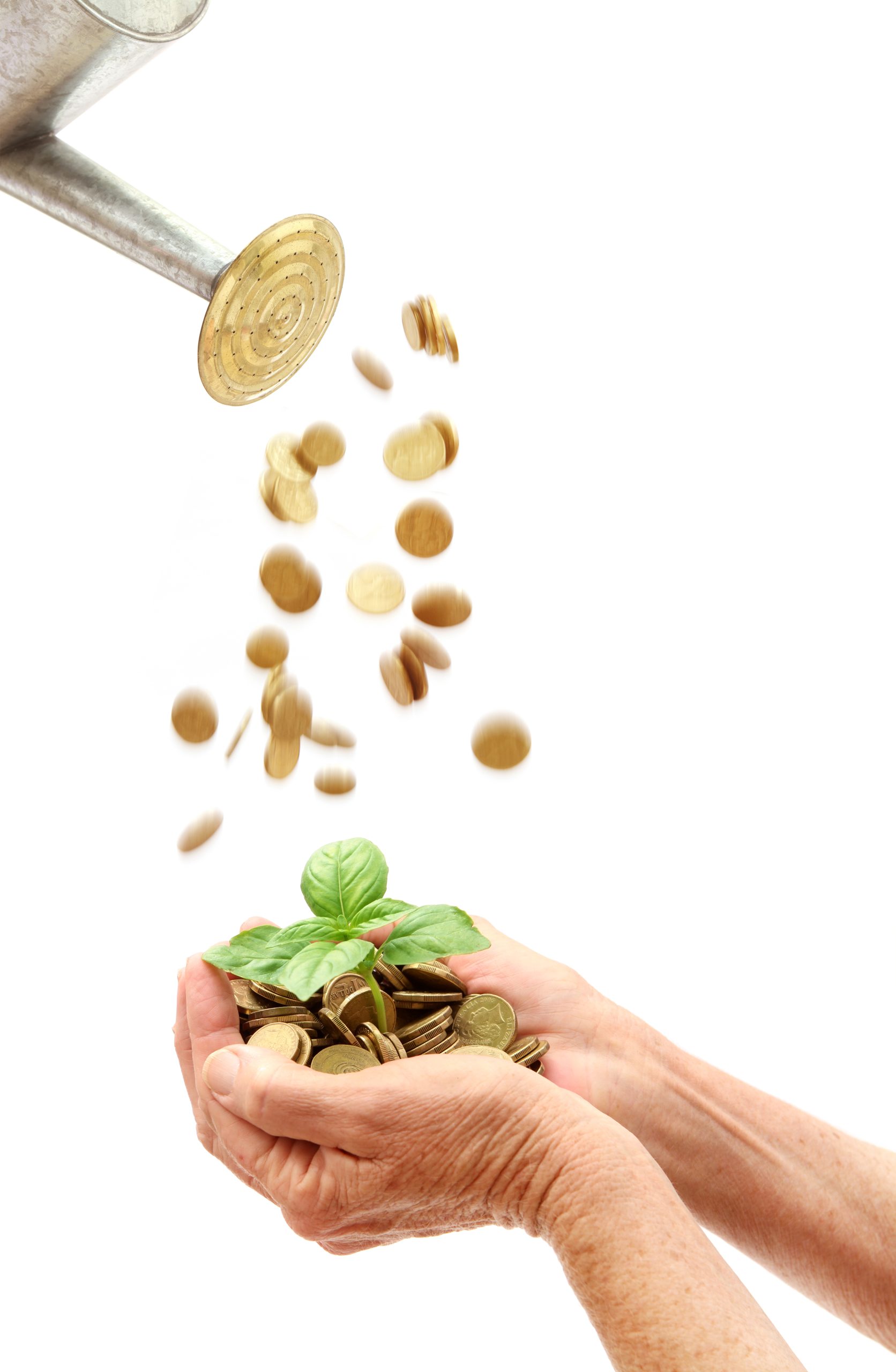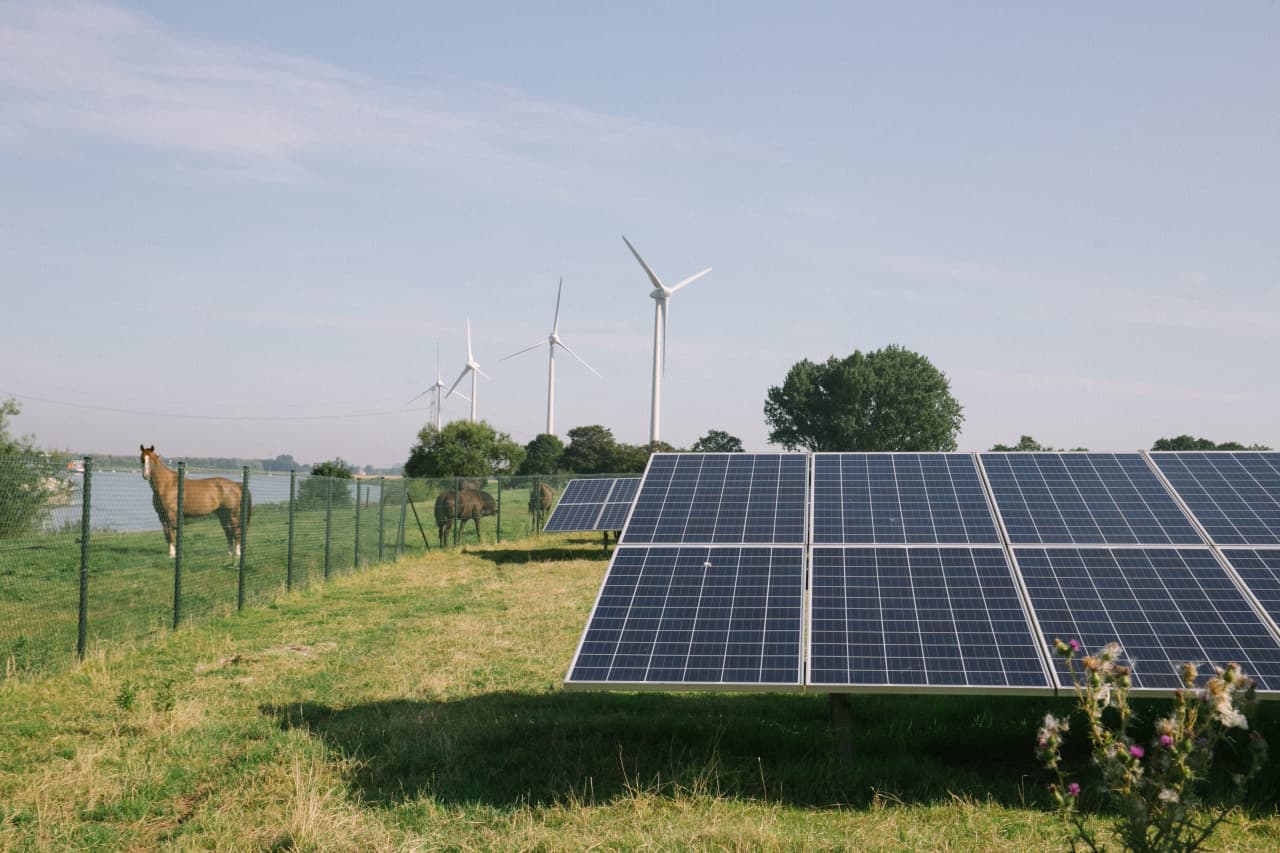Omicron’s Threat to Global Economy Increasingly Runs Through China
U.S. and Europe are learning to live with the virus, but Beijing’s zero-Covid strategy could hit supply chains.
The direct economic harm caused by the Omicron variant of Covid-19 in highly vaccinated countries appears so far to be relatively modest and short-lived, but its indirect hit could prove significant if China resorts to repeated lockdowns in its effort to suppress the virus within its borders.
Omicron led to a fresh surge in infections wherever it gained a foothold, a rise in deaths, and disruptions for businesses as infected workers sought medical treatment or quarantined.
But it has also become clear that Omicron causes milder symptoms in vaccinated people than its predecessors, and an increasing number of European countries have lifted restrictions put in place when the variant emerged. U.S. job growth accelerated in January, even though the number of people not working because of illness more than doubled from December.
So while business surveys and other data indicate economic growth slowed in Europe and the U.S. as 2022 began, many economists expect the Omicron variant to do less damage than previous surges.
The lifting or absence of restrictions in Europe and the U.S. signals a greater willingness to live with the virus, while remaining alert to its dangers. That is not yet an option where populations have received vaccines that offer very limited protection against Omicron, as is the case in China.
That is part of the reason why China continues to pursue a “zero-Covid” strategy, which requires strict lockdowns when local outbreaks occur.
China is the world’s leading supplier of the parts other manufacturers use to make the products households buy, which are known by economists as intermediate goods. Should it have to lock down significant parts of its economy, the impact would likely be felt in lower growth and higher inflation in Western economies.
“Lockdown risks therefore continue to rise in China, even as they decline elsewhere,” said Frédérique Carrier, head of investment strategy at RBC Wealth Management. “Increased pandemic restrictions could lead to additional supply-chain disruptions, hold back the normalization of the global economy, and fuel global inflation, while capping Chinese economic growth.”
The International Monetary Fund’s economists estimate that supply-chain problems knocked between one half and one full percentage point off global economic growth in 2021, while pushing inflation higher. In other words, the global economy would have grown by as much as 6.9% last year, compared with the 5.9% expansion it actually recorded, if there had been no supply problems.
There are some signs that supply-chain problems are easing. A new supply- blockages measure developed by economists at the Federal Reserve Bank of New York showed a record level of strain in November, but a decline in December and January, which they said “seems to suggest that global supply chain pressures, while still historically high, have peaked and might start to moderate somewhat going forward.”
A prolonged series of new lockdowns in China, however, could reverse that progress and be a significant drag on growth this year.
“China’s zero-Covid strategy could exacerbate global supply disruptions,” said Gita Gopinath, the IMF’s first deputy managing director.
According to the World Trade Organization, Chinese businesses sold $354 billion of intermediate goods to overseas buyers in the three months through June 2021, way more than the next largest exporter, which was the U.S. with $200 billion. The U.S. is the largest market for Chinese exports of intermediate goods, but South Korea, Japan, Germany and India also account for a significant share.
China would likely face a surge in deaths if it were to abandon the zero-Covid strategy now. About 86% of China’s population has been fully vaccinated, but the vaccines most widely used, developed by Sinopharm and Sinovac, use inactivated virus. Those are widely believed to be less effective against Omicron infections than the mRNA vaccines developed by Moderna Inc. and by Pfizer Inc. with BioNTech SE.
China is accelerating its efforts to produce domestic mRNA vaccines and medicines for Covid-19, said an official familiar with the matter. If it were to be successful, the need for lockdowns would become less pressing. But few expect a shift away from zero-Covid to happen soon.
“We really depend on China succeeding in this transition,” said Jörg Wuttke, president of the European Union Chamber of Commerce in China and chief representative of German chemical company BASF SE in the country. “But frankly, it doesn’t look good.”
Assessing the scale of the threat to global supply chains is difficult, given uncertainties about how rapidly Omicron can spread in an environment where restrictions are as tight as they are in China.
Two factors could lessen the impact of a more-rapid spread than has so far occurred. First, economists see the willingness to live with the virus in the U.S. and Europe as opening the way for a greater shift back to spending on services and away from spending on goods this year. That would ease some of the demand pressures on supply chains.
It is also possible that Chinese authorities could manage the zero-Covid policy to support exports, given the drag on growth from problems in the country’s property market and weak consumer spending at home.
“We believe the government will make efforts to minimize the supply disruptions, including some loosening/improvement in the zero-Covid policy implementation,” economists at Barclays Bank wrote in a note to clients.
This stylish family home combines a classic palette and finishes with a flexible floorplan
Just 55 minutes from Sydney, make this your creative getaway located in the majestic Hawkesbury region.
Impact investing is becoming more mainstream as larger, institutional asset owners drive more money into the sector, according to the nonprofit Global Impact Investing Network in New York.
In the GIIN’s State of the Market 2024 report, published late last month, researchers found that assets allocated to impact-investing strategies by repeat survey responders grew by a compound annual growth rate (CAGR) of 14% over the last five years.
These 71 responders to both the 2019 and 2024 surveys saw their total impact assets under management grow to US$249 billion this year from US$129 billion five years ago.
Medium- and large-size investors were largely responsible for the strong impact returns: Medium-size investors posted a median CAGR of 11% a year over the five-year period, and large-size investors posted a median CAGR of 14% a year.
Interestingly, the CAGR of assets held by small investors dropped by a median of 14% a year.
“When we drill down behind the compound annual growth of the assets that are being allocated to impact investing, it’s largely those larger investors that are actually driving it,” says Dean Hand, the GIIN’s chief research officer.
Overall, the GIIN surveyed 305 investors with a combined US$490 billion under management from 39 countries. Nearly three-quarters of the responders were investment managers, while 10% were foundations, and 3% were family offices. Development finance institutions, institutional asset owners, and companies represented most of the rest.
The majority of impact strategies are executed through private-equity, but public debt and equity have been the fastest-growing asset classes over the past five years, the report said. Public debt is growing at a CAGR of 32%, and public equity is growing at a CAGR of 19%. That compares to a CAGR of 17% for private equity and 7% for private debt.
According to the GIIN, the rise in public impact assets is being driven by larger investors, likely institutions.
Private equity has traditionally served as an ideal way to execute impact strategies, as it allows investors to select vehicles specifically designed to create a positive social or environmental impact by, for example, providing loans to smallholder farmers in Africa or by supporting fledging renewable energy technologies.
Future Returns: Preqin expects managers to rely on family offices, private banks, and individual investors for growth in the next six years
But today, institutional investors are looking across their portfolios—encompassing both private and public assets—to achieve their impact goals.
“Institutional asset owners are saying, ‘In the interests of our ultimate beneficiaries, we probably need to start driving these strategies across our assets,’” Hand says. Instead of carving out a dedicated impact strategy, these investors are taking “a holistic portfolio approach.”
An institutional manager may want to address issues such as climate change, healthcare costs, and local economic growth so it can support a better quality of life for its beneficiaries.
To achieve these goals, the manager could invest across a range of private debt, private equity, and real estate.
But the public markets offer opportunities, too. Using public debt, a manager could, for example, invest in green bonds, regional bank bonds, or healthcare social bonds. In public equity, it could invest in green-power storage technologies, minority-focused real-estate trusts, and in pharmaceutical and medical-care company stocks with the aim of influencing them to lower the costs of care, according to an example the GIIN lays out in a separate report on institutional strategies.
Influencing companies to act in the best interests of society and the environment is increasingly being done through such shareholder advocacy, either directly through ownership in individual stocks or through fund vehicles.
“They’re trying to move their portfolio companies to actually solving some of the challenges that exist,” Hand says.
Although the rate of growth in public strategies for impact is brisk, among survey respondents investments in public debt totaled only 12% of assets and just 7% in public equity. Private equity, however, grabs 43% of these investors’ assets.
Within private equity, Hand also discerns more evidence of maturity in the impact sector. That’s because more impact-oriented asset owners invest in mature and growth-stage companies, which are favored by larger asset owners that have more substantial assets to put to work.
The GIIN State of the Market report also found that impact asset owners are largely happy with both the financial performance and impact results of their holdings.
About three-quarters of those surveyed were seeking risk-adjusted, market-rate returns, although foundations were an exception as 68% sought below-market returns, the report said. Overall, 86% reported their investments were performing in line or above their expectations—even when their targets were not met—and 90% said the same for their impact returns.
Private-equity posted the strongest results, returning 17% on average, although that was less than the 19% targeted return. By contrast, public equity returned 11%, above a 10% target.
The fact some asset classes over performed and others underperformed, shows that “normal economic forces are at play in the market,” Hand says.
Although investors are satisfied with their impact performance, they are still dealing with a fragmented approach for measuring it, the report said. “Despite this, over two-thirds of investors are incorporating impact criteria into their investment governance documents, signalling a significant shift toward formalising impact considerations in decision-making processes,” it said.
Also, more investors are getting third-party verification of their results, which strengthens their accountability in the market.
“The satisfaction with performance is nice to see,” Hand says. “But we do need to see more about what’s happening in terms of investors being able to actually track both the impact performance in real terms as well as the financial performance in real terms.”
This stylish family home combines a classic palette and finishes with a flexible floorplan
Just 55 minutes from Sydney, make this your creative getaway located in the majestic Hawkesbury region.


















